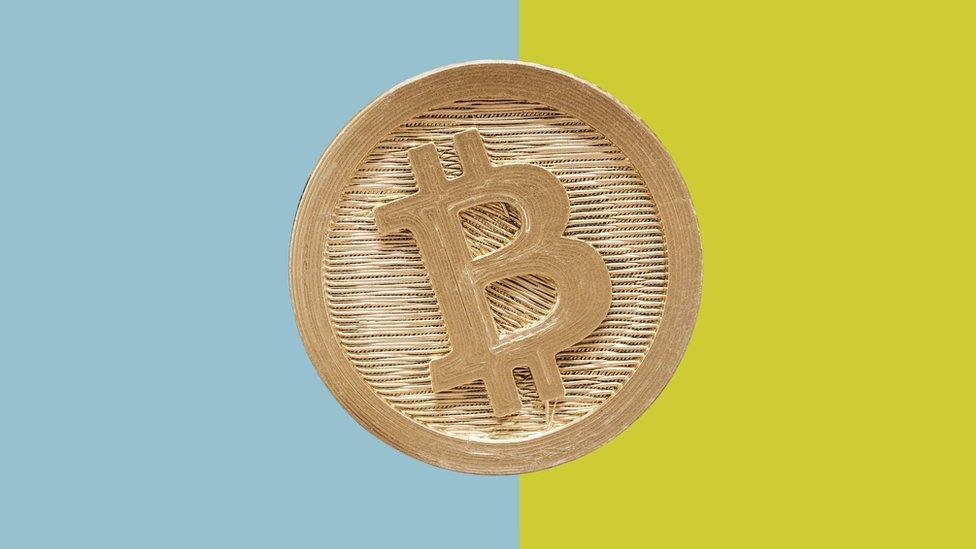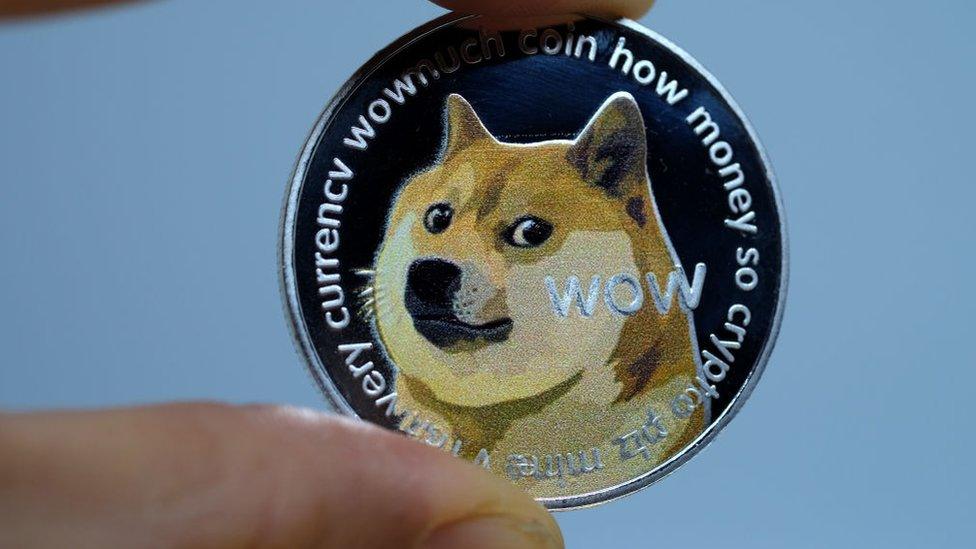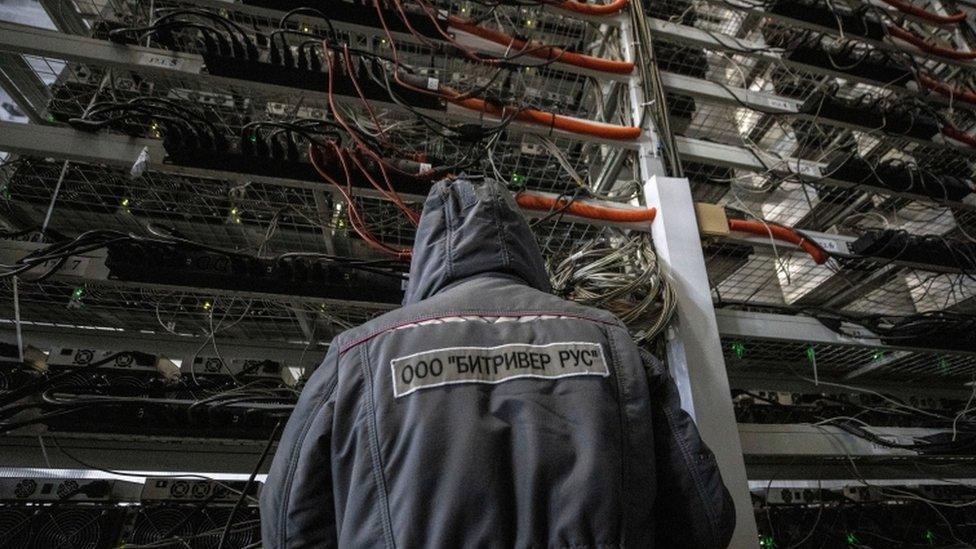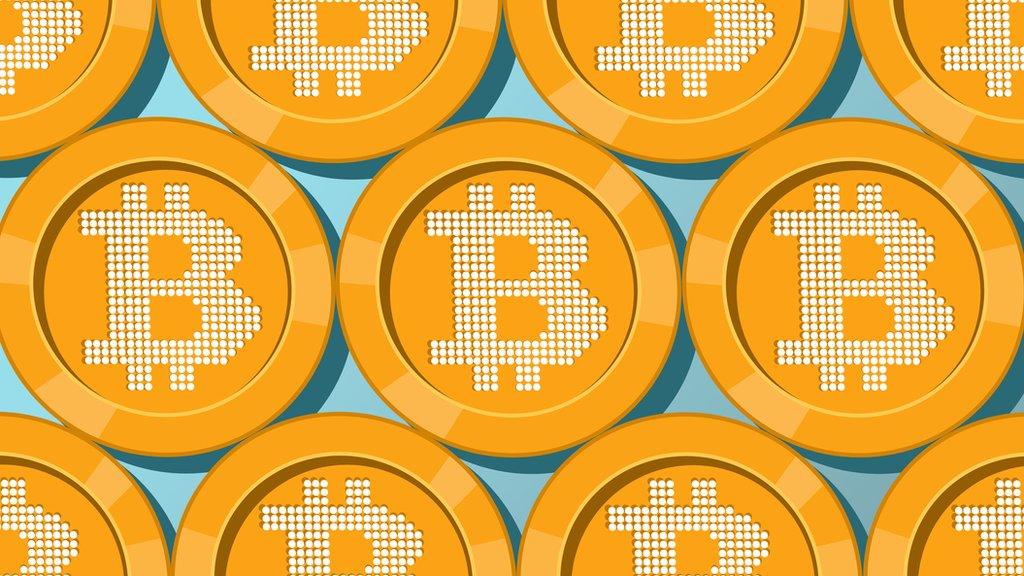Cryptocurrency: What is it and how does it work?
- Published
- comments
What is cryptocurrency and how does it work?
You've probably heard a lot of talk about Bitcoin in recent years. It's backed by the likes of billionaire businessman Elon Musk and a single coin is now worth more than £34,000!
Bitcoin is a type of cryptocurrency and there has been an increasing amount of interest around how this type of 'money' could become a bigger part of our day-to-day lives.
Cryptocurrencies are now being used to purchase lots of different products and services, and some people are even buying big things like cars and houses with theirs! They're not widely used at the moment, but many believe the use of cryptocurrencies could one day become a common way to buy and sell things.
The popularity of cryptocurrencies is on the rise, but you may be wondering - what exactly are they and how does it all actually work?
Say no more, here's everything you need to know!
What is a cryptocurrency?

Cryptocurrencies like Bitcoin are digital currencies or money
The concept of cryptocurrencies might sound pretty complicated, but it's all quite easy to understand once you break it down.
Simply put, cryptocurrencies are digital currencies or digital money. They don't exist physically like the coins and cash people all around the world use today, but instead they're completely virtual.
Although we can't see or touch cryptocurrencies, they do hold value. Cryptocurrencies can be stored in a 'digital wallet' on a smartphone or computer, and owners can send them to people to buy things.
Where did cryptocurrencies come from?

The cryptocurrency Dogecoin was orginally created by Billy Markus and Jackson Palmer as a joke!
Bitcoin is believed to be the first ever cryptocurrency to have been created. It first came onto the scene back in 2009 and is the brainchild of a man who went by the name Satoshi Nakamoto.
Lots of other cryptocurrencies have been created since then and there are now thousands in existence!
Bitcoin
Dogecoin
Litecoin
Ethereum
Cardano
Ripple
XRP
Stellar
Tether
How do cryptocurrencies actually work?

Litecoin, Bitcoin and Ripple are some of today's most popular cryptocurrencies
Nowadays, it's common for people to use either cash, or what's known as a debit card - which allows people to spend money they already have in their bank account - to make purchases.
When someone buys an item in a shop using a bank card, a chain of processes take place.
The person shares their bank details with the shop and the shop then shares those details with the bank which checks its records to see whether the customer has enough money in their account to pay for the item. Once this is confirmed, the bank tells the shop the transaction is all good to go and updates its records.
Cryptocurrencies, however, work in a very different way.
The exchange of these digital currencies are known as 'peer-to-peer' transactions, which simply means there are no banks, or other third parties involved.
Instead, every transaction ever made is recorded on a huge database known as a blockchain - think about it like a massive spreadsheet.
Each transaction made is represented by a block which is added to the larger chain, hence the name blockchain, and all the transactions remain in the blockchain forever.
A blockchain isn't based in a central location, but is distributed among a large network of computers which is kept secure at all times through complex systems. This makes it virtually impossible for anyone to tamper with a blockchain and ensures all transactions and users are protected.
How do you get hold of cryptocurrencies?

This data centre in Russia provides cryptocurrency mining services to investors and mining firms
People can buy and sell cryptocurrencies like Bitcoin, but they can also get hold of them through a process known as mining.
Powerful computers can be set up by individuals or groups, and these are tasked with working out incredibly difficult equations. These machines are able to add transactions to the blockchain and can also check their validity, making sure they're all accurate. Occasionally, owners are rewarded with cryptocurrencies to keep for their work.
However, the sums are becoming more and more difficult as more Bitcoins enter circulation - a fancy way of saying there are more coins up for grabs - to make sure there aren't too many being generated. To put it in context, if you were to start mining now, it could be years before you got a single Bitcoin!
Why have cryptocurrencies been criticised?

Cryptocurrencies are being used to purchase goods and services around the world
Cryptocurrencies have been widely criticised as computers used for mining consume lots and lots of energy, although it's unclear exactly how much is used.
The University of Cambridge Centre for Alternative Finance (CCAF) studies cryptocurrencies. As of August 2021, it estimates that Bitcoin's total energy consumption could be between 31 and 327 terawatts a year (TWh), with a central estimate of about 87 TWh.
If we compare this to the UK, the country's total electricity consumption was 330 TWh in 2020 according to the government's most recent data.
- Published27 February 2024

- Published2 December 2019

- Published12 March 2021

